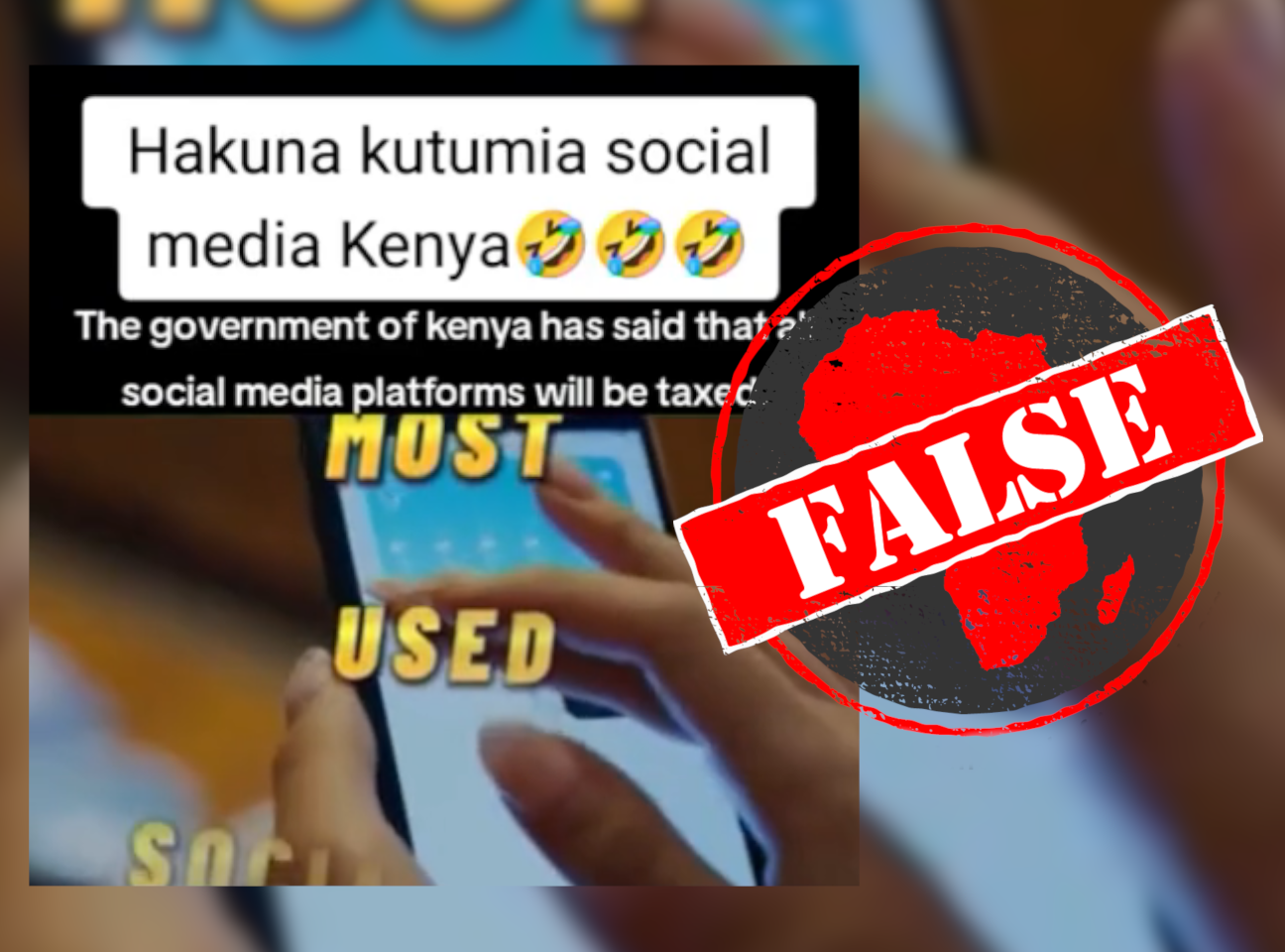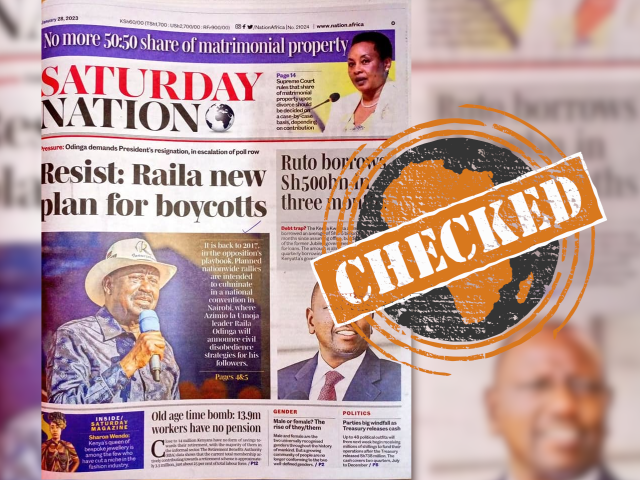IN SHORT: Kenya's government is pushing to increase tax collection and many are feeling the pinch. But a video clip making the rounds online has been edited to suggest that president William Ruto will make it even harder for Kenyans by taxing social media platforms.
A video posted on TikTok in November 2023 supposedly shows a clip from an international TV station announcing that the Kenyan government will start taxing social media platforms.
The video features anchor Jim Williams of CBN News Chicago, a news channel based in Illinois, United States.
“The government of Kenya has said that all social media platforms will be taxed,” the video says.
It then lists the new alleged tax amounts for each platform, to be levied per month. According to the video, the taxes are to be implemented from 21 December 2023. These are:
- Facebook 900
- WhatsApp 1,100
- TikTok 1,300
- Telegram 1,400
- Instagram 1,600
It does not say in what currency these taxes will be collected and includes clips of Kenya’s president William Ruto at various events.
Since taking office in September 2022, Ruto has embarked on a major, and at times unpopular, drive to raise taxes. Many Kenyans have been unhappy with the tax increases.
Claims that Ruto has now introduced taxes on social media platforms have gained traction, especially with the country’s digital content creators already in the tax collector’s crosshairs.
This particular claim has been posted on Facebook here, here and here. But is it legitimate? We checked.

Ignore edited video
Africa Check searched for this report on Kenyan media platforms and came up empty.
This would be widely reported in the Kenyan media, as taxes are a much-discussed topic in the country. Such levies would also affect millions of people, with Facebook alone estimated to have more than 13 million users in the country.
A closer look at one of the clips shows that the newsreader’s lip movement is not in sync with the voiceover.
The text at the beginning of the video reads: “Video of officer shot.” We searched the CBN News Chicago’s website and YouTube channel with this clue. We found the original video showing the first frame of Williams, posted by the broadcaster on 29 June 2022.
The broadcast had nothing to do with the introduction of taxes on social media platforms in Kenya. It was about a Chicago police officer who was shot in the city’s Englewood neighbourhood.
‘Fake news’
We searched the official Facebook page, X account, and website of the Kenya Revenue Authority (KRA), the country's tax agency, for this update but came up empty. This is unexpected for such an important tax issue.
In November 2023, the KRA posted the circulating video on its social media accounts with the word “fake” stamped in red.
“Kindly be advised that this is fake news.#KaaRada,” reads the post on the official X account. Kaa rada is Kenyan slang for “stay alert”.
Republish our content for free
For publishers: what to do if your post is rated false
A fact-checker has rated your Facebook or Instagram post as “false”, “altered”, “partly false” or “missing context”. This could have serious consequences. What do you do?
Click on our guide for the steps you should follow.
Publishers guideAfrica Check teams up with Facebook
Africa Check is a partner in Meta's third-party fact-checking programme to help stop the spread of false information on social media.
The content we rate as “false” will be downgraded on Facebook and Instagram. This means fewer people will see it.
You can also help identify false information on Facebook. This guide explains how.



Add new comment